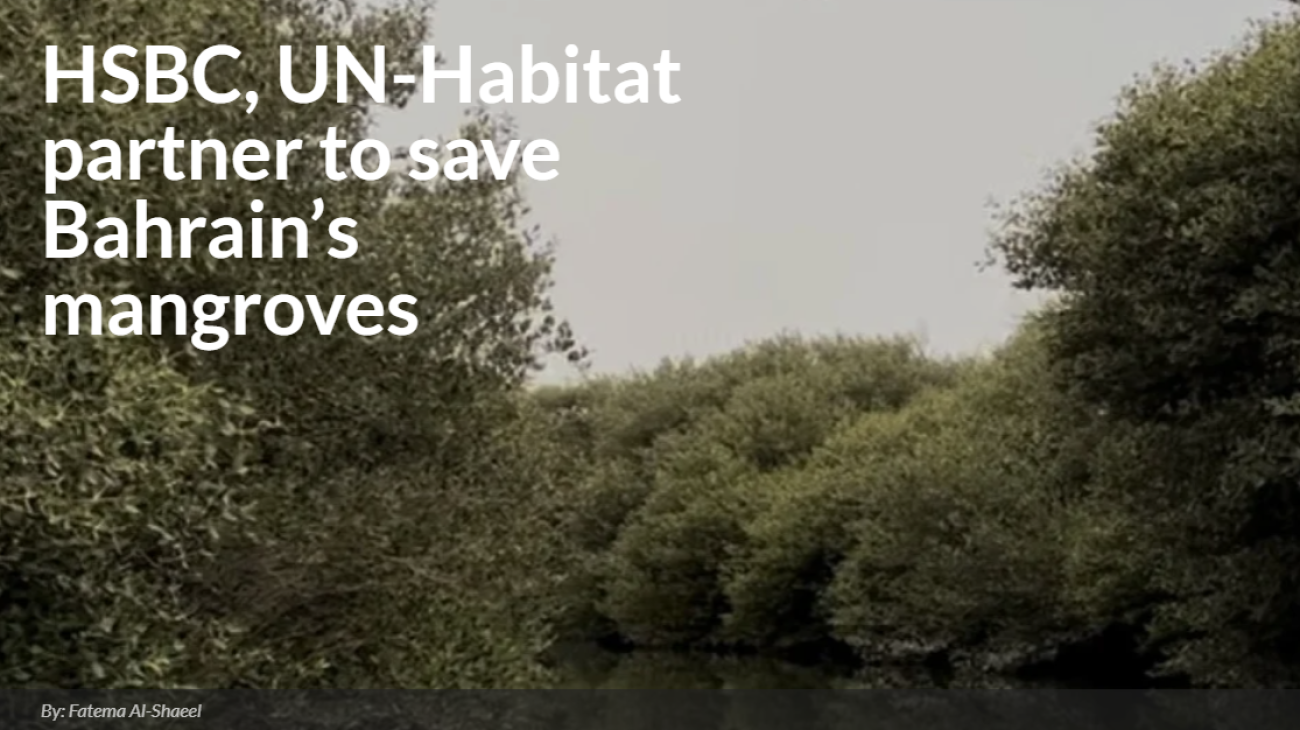HSBC, UN-Habitat partner to save Bahrain’s mangroves

The rehabilitation and restoration of mangrove habitats in Manama will contribute to creating opportunities for recreation, awareness, and ecoturism.
Protecting wetlands is essential in reviving biodiversity, replenishing and filtering water supply, and climate disaster mitigation.
Coastal habitats, such as seagrass beds, mangroves, and mudflats, are essential for global carbon sequestration and storage, making them invaluable for climate change mitigation.
Tubli Bay in Bahrain covers some 13.5 square kilometres and is home to the largest mangrove forest in the country.
It was declared a protected area in 1995 and listed as a Ramsar Wetlands Site of International Importance in 1997.
Still, Tubli Bay's mangrove ecosystem coexists with a dense and diverse urban area, highlighting the challenges and opportunities to integrate nature into urban planning and development.
The bay will benefit from a new partnership launched in March between UN-Habitat and global banking giant HSBC to enhance urban coastal ecosystems for community well-being, climate action, and biodiversity in Bahrain.
The project, funded by HSBC and implemented by UN-Habitat, is part of HSBC's Climate Programme. This four-year global philanthropic initiative focuses on identifying and scaling innovative and impactful solutions to climate change that are currently not commercially available and viable. In Bahrain, the rehabilitation and restoration of mangrove habitats situated along the urban fringes of the Bahrain capital city of Manama will contribute to creating more significant opportunities for recreation, awareness, and ecotourism while contributing to the broader national efforts on climate mitigation and adaptation.
The project further aims to enhance 'blue natural carbon sinks' in Bahrain together with co-benefits from the protection of biodiversity while creating opportunities for urban communities to enjoy nature-based activities that can improve overall human well-being among the population of Manama. It will explore and document broader socio-economic benefits of coastal ecosystems and barriers and opportunities to scaling up such actions nationally.
"At HSBC, we are committed to playing an active role in protecting our planet and investing in projects that will secure impactful initiatives, such as the Tubli Bay mangrove forest in Bahrain,” said Abdulfattah Sharaf, CEO UAE and Head of International, HSBC Bank Middle East.
“Our partnership with UN-Habitat goes beyond just enhancing the urban coastal ecosystem; it will also improve awareness and drive solutions that deliver long-term positive results. This project will, over time, contribute to climate mitigation and adaptation."
The project will support the ongoing efforts of the Government of The Kingdom of Bahrain to increase the mangrove area by four times by 2035, extending the benefits from the current work of the Bahrain Supreme Council for the Environment and the Ministry of Municipalities Affairs and Agriculture to restore mangrove ecosystems and the construction of a visitor center at Ras Sanad in Tubli Bay.
"We are glad to be working with HSBC Bank Middle East on this project and fully aligned with the Government of Bahrain's commitment to the Global Climate Goals; cities are at the heart of climate action; through restoring urban coastal habitats such as the mangroves, this project will increase community well-being and biodiversity while promoting the connection between the city and the Marine Environment", said Fernanda Lonardoni, Head of UN-Habitat Bahrain and project manager.


